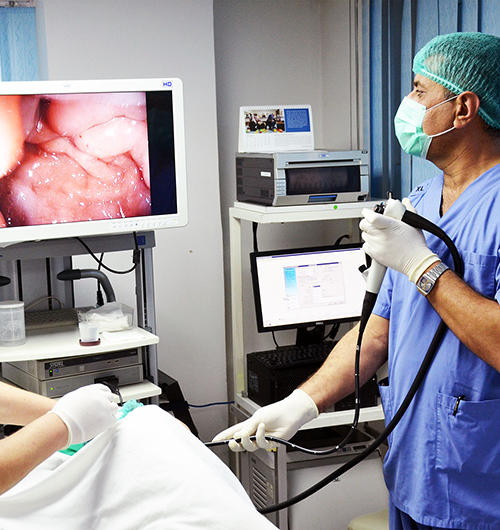Gastroenterology Genetic Testing is a specialized diagnostic tool that analyzes a person’s DNA to identify genetic variations linked to digestive system disorders. It helps detect inherited conditions affecting the gastrointestinal tract, liver, pancreas, and related organs. This testing can uncover risks for diseases such as hereditary colorectal cancer, inflammatory bowel disease, celiac disease, and familial polyposis. By understanding genetic predispositions, healthcare providers can tailor prevention strategies, guide early interventions, and personalize treatment plans. Gastroenterology genetic testing is especially valuable for individuals with a family history of digestive disorders or unexplained gastrointestinal symptoms, enabling proactive management and improved health outcomes.
Choosing Gastroenterology Genetic Testing offers a proactive and personalized approach to digestive health. This testing helps identify inherited risks for a wide range of gastrointestinal conditions, allowing for early detection, timely intervention, and targeted treatment. It provides clarity in complex or unexplained digestive symptoms and aids in diagnosing rare or hereditary disorders that may not be apparent through routine testing. By understanding your genetic makeup, doctors can recommend lifestyle changes, surveillance strategies, or preventive measures tailored to your specific risk. This empowers patients and families with knowledge, helping them make informed health decisions and reduce the likelihood of future complications.





Gastroenterology genetic testing is recommended for individuals with a personal or family history of digestive system disorders, especially those that appear early in life or recur across generations. It is also valuable for people experiencing unexplained gastrointestinal symptoms or those diagnosed with multiple polyps or rare digestive diseases. Identifying genetic causes helps guide prevention, screening, and treatment strategies for both the individual and at risk family members.
You should consider this test if:

A healthcare provider reviews your medical and family history to determine if genetic testing is appropriate.
You’ll receive detailed information about the test’s purpose, benefits, and limitations, and provide written consent.
A DNA sample is collected, typically through a blood draw or saliva (cheek swab).
The sample is sent to a certified genetic lab where specific genes associated with gastrointestinal disorders are analyzed.
A genetic counselor or specialist interprets the results in the context of your health and family background.
Based on the findings, your provider may suggest lifestyle changes, screening schedules, or treatment options tailored to your genetic risk.

 01
01
Our fully integrated E-Lab platform offers online test ordering, real-time tracking, and secure digital reporting bringing convenience and control to both physicians and patients across the country.
 02
02
From routine blood tests to complex genetic panels, we leverage cutting-edge platforms like NGS, PCR, and AI-powered analytics for maximum accuracy and clinical relevance.
 03
03
With lab facilities based in Florida, we ensure faster processing times and direct access to our expert team. You get timely results backed by responsive, local customer support.
At E-lab, we are dedicated to innovation, collaboration, and seamless growth.
